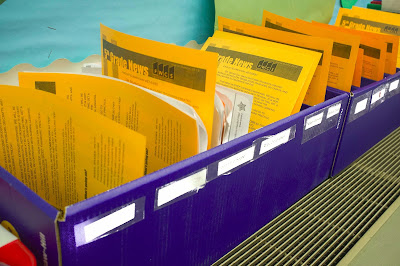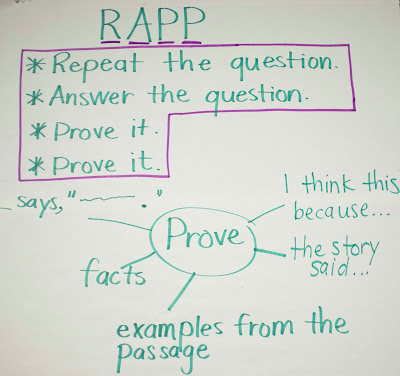At the beginning of the school year I was constantly finding graded student work, newsletters I'd slaved over, and other papers meant to be seen by parents, stuffed inside student desks and hidden inside the recycling bins. A colleague suggested I use mailboxes to put all of their papers inside, and give them a moment at the end of the day to pick up their papers and put them in their backpacks. I, however, was not one of the lucky teachers to inherit all sorts of wonderful organizational materials. So, I took the books for guided reading out of their cardboard shelves, found another home for them, and labeled each shelf with a student name. It's been working well, and MOST students are much more organized and good at getting their papers to their parents. Now, what to do with those students who purposely lose their papers.







